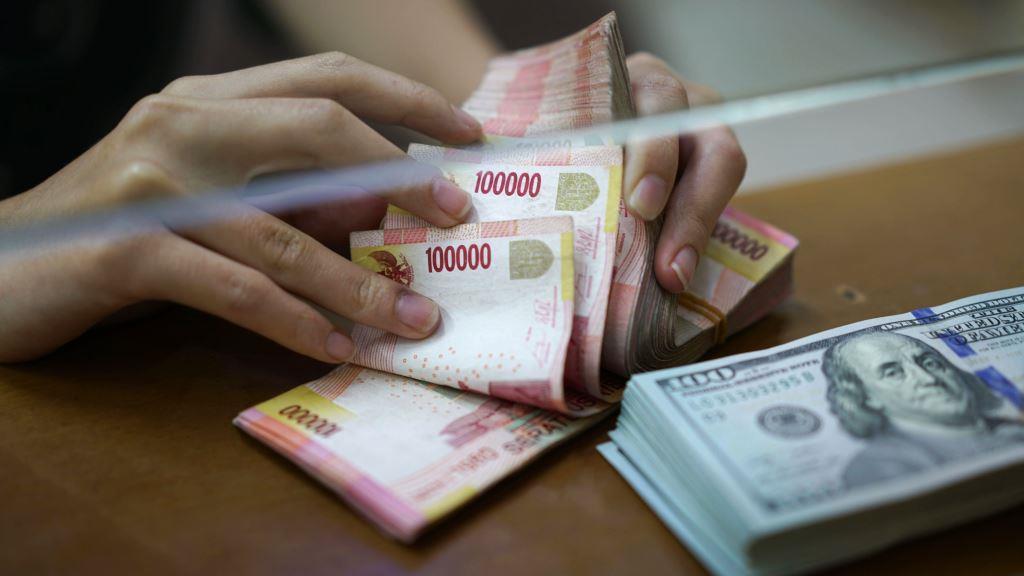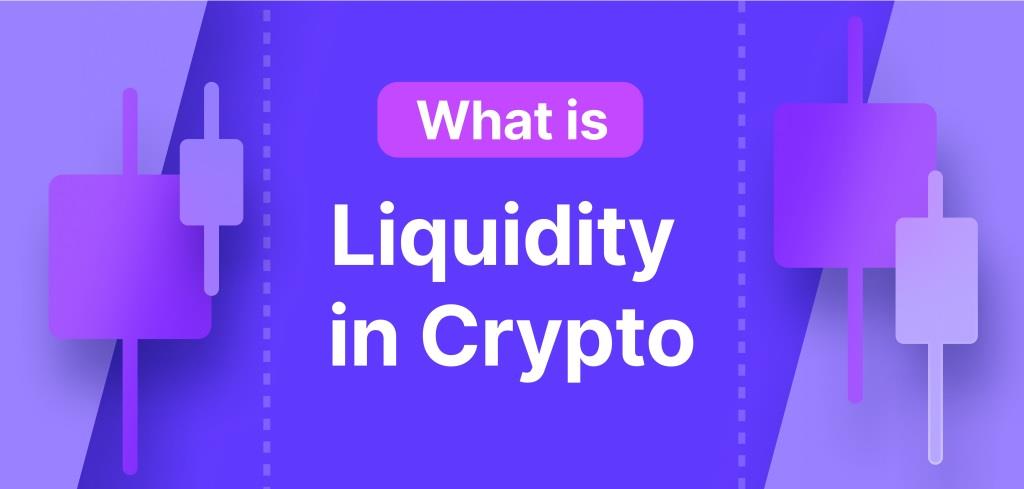Economy
Staking as a Passive Trading Strategy: Unlocking Steady Crypto Earnings

Introduction
In the world of cryptocurrency, staking has emerged as one of the most popular and accessible ways for investors to earn passive income. Unlike traditional trading, where the value of assets can fluctuate wildly in a single day, staking provides a more stable and predictable form of income. Staking involves holding a specific cryptocurrency in a wallet to support the operations of a blockchain network. In return, participants earn rewards in the form of additional cryptocurrency. As the crypto market evolves, staking has gained traction as a low-effort, passive trading strategy, appealing to both new and seasoned investors.
In this article, we will delve into staking as a passive trading strategy, exploring how it works, its benefits and drawbacks, and the various considerations for investors. With the potential for steady earnings and portfolio diversification, staking offers a unique avenue for those looking to optimize their crypto holdings.
What is Staking?
H2: Understanding the Basics of Staking
Staking is the process of participating in a blockchain network by holding a certain amount of cryptocurrency to support network operations. Stakers contribute to securing the network, validating transactions, and in some cases, creating new blocks. In proof-of-stake (PoS) and delegated proof-of-stake (DPoS) systems, staking replaces the energy-intensive mining process seen in proof-of-work (PoW) blockchains like Bitcoin.
By staking their assets, users help maintain the stability of the network while earning rewards as compensation. The amount of cryptocurrency staked often determines the level of influence or participation in the network’s validation process.
H3: How Staking Rewards Are Calculated
The rewards for staking depend on several factors, including:
- Amount Staked: The more you stake, the higher your potential rewards.
- Network Inflation: Some blockchains inflate their supply to distribute staking rewards.
- Duration of Stake: Certain networks offer higher rewards for longer staking periods.
- Overall Network Staking Ratio: If a large portion of the network’s currency is staked, individual rewards may be lower.
Benefits of Staking as a Passive Trading Strategy
H2: Advantages of Staking
Staking provides a variety of benefits for investors looking to earn passive income. Here are some of the primary advantages:
- Consistent Passive Income: Unlike volatile trading, staking provides a steady source of income, with rewards paid periodically.
- Eco-Friendly: Staking is energy-efficient compared to mining in PoW systems, which require extensive energy usage.
- Support for Blockchain Networks: By staking, investors play a role in securing the network, thereby contributing to the stability and decentralization of the blockchain ecosystem.
- Low Entry Barrier: Staking does not require advanced technical knowledge or expensive equipment, making it accessible to most crypto holders.
H3: Portfolio Diversification
Staking allows investors to diversify their portfolio by adding different staking assets, spreading risk across various projects. This approach can reduce volatility and create a more balanced investment strategy.
Risks and Challenges of Staking
H2: Drawbacks of Staking
While staking has numerous benefits, it is not without its challenges. Below are some of the key risks associated with staking:
Market Volatility: Although staking rewards may seem stable, the underlying asset’s value can fluctuate, impacting the actual return on investment.
Lock-Up Periods: Some blockchains require stakers to lock up their assets for a set period, during which they cannot access or trade their funds.
Slashing Penalties: Certain networks impose penalties, known as slashing, for validator misbehavior. Stakers may lose a portion of their staked assets if the validator fails to comply with network rules.
Inflationary Pressures: Some networks distribute staking rewards by inflating their supply, which could dilute the value of the token over time.
H3: Lack of Liquidity
Staked assets may lack liquidity, especially during lock-up periods. If the market takes a downturn, stakers might be unable to sell their holdings quickly, resulting in potential losses.
Different Staking Methods
H2: Popular Staking Methods for Investors
There are various ways to participate in staking, each with its pros and cons. Below are a few popular methods:
- Direct Staking: Investors stake their assets directly on a blockchain network by becoming validators.
- Delegated Staking: Investors delegate their tokens to a validator node. The validator takes care of technical requirements while the investor receives a portion of the rewards.
- Staking Pools: Staking pools allow users to combine their resources to maximize rewards. Pooling can help smaller investors earn rewards even if they don’t meet the minimum staking requirements.
Key Considerations for Staking
H2: Factors to Evaluate Before Staking
Before diving into staking, investors should carefully consider the following:
- Staking Yields: Evaluate the reward rate offered and compare it with potential inflation on the network.
- Staking Period: Be mindful of the lock-up period and whether the network offers flexible options for early withdrawal.
- Reputation of Validators: When choosing a validator, consider their reputation, fee structure, and history of slashing events.
- Platform Security: Ensure that the platform or wallet used for staking has strong security measures to prevent unauthorized access.
H3: Tools and Resources for Effective Staking
Platforms like Nearest Edge offer tools and insights to optimize staking strategies, providing traders with the necessary data to make informed staking decisions.
Staking Case Studies
Many investors have found success through staking, particularly during market upswings. For example, Ethereum 2.0 staking has attracted significant interest as it prepares to transition from PoW to PoS, offering attractive returns for ETH holders who choose to stake.
Another example is Cardano (ADA), which has gained popularity due to its unique approach to staking and user-friendly wallet options. Both Ethereum and Cardano highlight the advantages of staking for long-term investors focused on capital appreciation and passive income.
FAQ Section
H2: Frequently Asked Questions (FAQ) on Staking
H3: 1. What is staking in crypto? Staking is the process of holding crypto in a wallet to support a blockchain network and earn rewards.
H3: 2. How much can I earn through staking? Earnings vary based on factors like the amount staked, duration, and network inflation. Yields generally range between 4% and 20% annually.
H3: 3. Are there risks involved in staking? Yes, risks include market volatility, slashing penalties, lock-up periods, and liquidity constraints.
H3: 4. Do I need technical knowledge to stake? No, many staking platforms make it easy for beginners. Delegated staking and staking pools are especially user-friendly.
H3: 5. Is staking the same as mining? No, staking is a different consensus mechanism. Mining requires significant energy use, while staking does not.
H3: 6. What is a lock-up period? Some networks require staked funds to be locked for a specified time, limiting access during this period.
H3: 7. Can I stake multiple cryptocurrencies? Yes, depending on the network and platform, you can stake various cryptocurrencies simultaneously.
H3: 8. What are staking rewards based on? Rewards depend on the network’s design, including the staked amount, duration, and market conditions.
H3: 9. Are staking rewards taxed? Yes, staking rewards may be subject to taxation. Consult with a tax professional for guidance.
H3: 10. What are the best tools for staking? Platforms like Nearest Edge offer tools to track staking returns and monitor market trends.
Conclusion
Staking is a highly effective passive income strategy in the crypto space, offering a consistent way to earn returns without constant monitoring. With several options, including direct staking, delegated staking, and staking pools, investors can choose a method that fits their risk tolerance and financial goals. However, it’s crucial to understand the potential risks involved, such as market volatility, liquidity issues, and slashing penalties.
As the DeFi ecosystem expands, staking will likely continue to grow in popularity, providing both novice and experienced traders with a valuable income-generating tool. Whether you’re seeking a low-maintenance strategy to grow your crypto portfolio or an eco-friendly alternative to mining, staking presents a compelling option in the crypto market.
Economy
Unlisted Securities Shed 0.21% on Profit-taking

By Adedapo Adesanya
It was a bad day for the NASD Over-the-Counter (OTC) Securities Exchange on Monday, February 23, after it slumped 0.21 per cent at the close of business.
This pullback was influenced by profit-taking by investors in four securities, which overpowered the gains recorded by six others.
According to data, Central Securities Clearing System (CSCS) Plc dipped N3.79 to sell at N67.21 per unit compared with the previous N71.00 per unit, UBN Property Plc lost 13 Kobo to close at N1.98 per share versus N2.11 per share, Resourcery Plc fell 3 Kobo to 36 Kobo per unit from 39 Kobo per unit, and Geo-Fluids Plc depreciated 1 Kobo to close at N3.31 per share versus N3.32 per share.
As a result, the bourse’s market capitalisation went down by N5.04 billion to N2.384 trillion from N2.389 trillion, and the NASD Unlisted Security Index (NSI) decreased by 8.42 points to 3,985.90 points from 3,994.32 points.
Business Post reports that NIPCO Plc rose N23.00 to N253.00 per unit from N230.00 per unit, MRS Oil Plc added N14.50 to close at N214.50 per share versus N200.00 per share, FrieslandCampina Wamco Nigeria Plc grew by N1.85 to N93.40 per unit from N91.55 per unit, NASD Plc soared 40 Kobo to N51.28 per share from N50.88 per share, First Trust Mortgage Bank Plc advanced by 12 Kobo to N1.32 per unit from N1.20 per unit, and Food Concepts Plc improved by 6 Kobo to N3.76 per share from N3.70 per share.
As for the trading data, the volume of securities jumped 99.7 per cent to 7.3 million units from 3.7 million units, but the value depleted by 26.8 per cent to N61.8 million from N84.5 million, and the number of deals slipped 7.1 per cent to 39 deals from 42 deals.
At the close of trades, CSCS Plc was the most active stock by value (year-to-date) with 32.9 million units sold for N1.9 billion, followed by Geo-Fluids Plc with 120.6 million units valued at N473.4 million, and Resourcery Plc with 1.05 billion units exchanged for N408.7 million.
Resourcery Plc closed the session as the most active stock by volume (year-to-date) with 1.05 billion units worth N408.7 million, followed by Geo-Fluids Plc with 120.6 million units valued at N473.4 million, and CSCS Plc with 32.9 million units traded for N1.9 billion.
Economy
Customs Street Opens Week Bullish After 0.66% Surge

By Dipo Olowookere
The Nigerian Exchange (NGX) Limited ended the first trading session of the week on a positive note after it chalked up 0.66 per cent on Monday.
The gains recorded yesterday were boosted by the 3.42 per cent rise by the insurance sector, the 1.44 per cent surge by the banking index, and the 1.30 per cent leap by the industrial goods counter. They offset the 0.20 per cent loss posted by the energy sector and a 0.11 per cent decline suffered by the consumer goods industry.
Consequently, the All-Share Index (ASI) closed higher by 1,273.78 points to 196,263.55 points from 194,989.77 points, and the market capitalisation appreciated by N805 billion to N125.969 trillion from N125.164 trillion.
Business Post observed that investor sentiment turned bearish during the session after Customs Street ended with 34 price losers and 33 price gainers, representing a negative market breadth index.
Fortis Global Insurance gained 10.00 per cent to trade at 66 Kobo, Okomu Oil expanded by 10.00 per cent to N1,605.60, Fidson rose by 9.90 per cent to N95.50, NPF Microfinance Bank rose by 9.89 per cent to N6.89, and Infinity Trust Mortgage Bank jumped 9.84 per cent to N17.30.
On the flip side, The Initiates weakened by 10.00 per cent to N17.55, Deap Capital deflated by 9.97 per cent to N6.86, LivingTrust Mortgage Bank went down by 9.92 per cent to N5.90, Multiverse lost 9.92 per cent to close at N22.70 per cent, and Ellah Lakes shrank by 9.77 per cent to N11.55.
Yesterday, market participants traded 1.3 billion shares worth N31.5 billion in 95,091 compared with the 820.5 million shares valued at N28.3 billion in 63,507 deals last Friday, indicating an increase in the trading volume, value, and number of deals by 58.44 per cent, 11.31 per cent, and 49.73 per cent apiece.
Japaul ended the session as the busiest stock after selling 474.0 million units worth N2.0 billion, Chams traded 51.5 million units for N221.3 million, Jaiz Bank exchanged 48.3 million units for N566.9 million, Secure Electronic Technology transacted 46.3 million units worth N68.8 million, and Mutual Benefits sold 42.5 million units valued at N242.5 million.
Economy
Naira Further Crashes to N1,349/$1 at Official Market

By Adedapo Adesanya
The first trading day in the currency market in Nigeria ended bearish for the Naira as its value further weakened against the US Dollar in the Nigerian Autonomous Foreign Exchange Market (NAFEX) on Monday by N2.92 or 0.22 per cent to N1,349.24/$1 from the N1,346.32/$1 it was traded last Friday.
Also in the spot market, the Nigerian currency depreciated against the Pound Sterling by N6.62 during the trading day to close at N1,821.87/£1 versus the preceding session’s N1,815.25/£1, and lost N6.80 on the Euro to settle at N1,591.42/€1, in contrast to the previous rate of N1,584.62/€1.
At the GTBank forex desk, the Nigerian Naira crashed against the greenback yesterday by N1 to quote at N1,357/$1 versus the preceding session’s closing value of N1,356/$1, but in the black market, the Naira appreciated by N5 to close at N1,365/$1 compared with the preceding trading day’s N1,370/$1.
The Naira slide came amid renewed pressure as weekly inflows declined, as Bureaux De Change (BDC) operators were unable to purchase Dollars from banks two weeks after the Central Bank of Nigeria (CBN) reopened the official FX Market window to them.
It had been expected that BDCs would help to further deflate the parallel market premium, but according to reports, BDC operators had yet to commence FX purchases from commercial banks, two weeks after the apex bank said legitimate agents can access up to $150,000 from the banks.
There were no FX inflows from the CBN during the past week, according to a report by the research department of Coronation Merchant Bank.
Meanwhile, Nigeria’s external reserves, which provide the CBN with firepower to support the naira, rose to $48.77 billion as of February 19, 2026.
Meanwhile, the cryptocurrency market was in the red as a broader risk-off shift tied to an emerging “AI scare trade” in equities is weighing on crypto markets.
This is leading traders to sell, while the sharp liquidation events that typically attract dip buyers have seen no such move recently, with Bitcoin (BTC) down by 3.2 per cent to $62,901.86.
Further, Ethereum (ETH) depreciated by 2.5 per cent to $1,821.13, Cardano (ADA) slid 1.9 per cent to $0.2571, Litecoin (LTC) went down by 1.9 per cent to $50.45, Solana (SOL) shrank 1.8 per cent to $76.54, Dogecoin (DOGE) declined by 1.7 per cent to $0.0912, Ripple (XRP) slumped 1.2 per cent to $1.32, and Binance Coin (BNB) lost 0.6 per cent to sell for $589.88, while the US Dollar Tether (USDT) and the US Dollar Coin (USDC) closed flat at $1.00 each.
-

 Feature/OPED6 years ago
Feature/OPED6 years agoDavos was Different this year
-
Travel/Tourism10 years ago
Lagos Seals Western Lodge Hotel In Ikorodu
-

 Showbiz3 years ago
Showbiz3 years agoEstranged Lover Releases Videos of Empress Njamah Bathing
-

 Banking8 years ago
Banking8 years agoSort Codes of GTBank Branches in Nigeria
-

 Economy3 years ago
Economy3 years agoSubsidy Removal: CNG at N130 Per Litre Cheaper Than Petrol—IPMAN
-

 Banking3 years ago
Banking3 years agoSort Codes of UBA Branches in Nigeria
-

 Banking3 years ago
Banking3 years agoFirst Bank Announces Planned Downtime
-

 Sports3 years ago
Sports3 years agoHighest Paid Nigerian Footballer – How Much Do Nigerian Footballers Earn





















